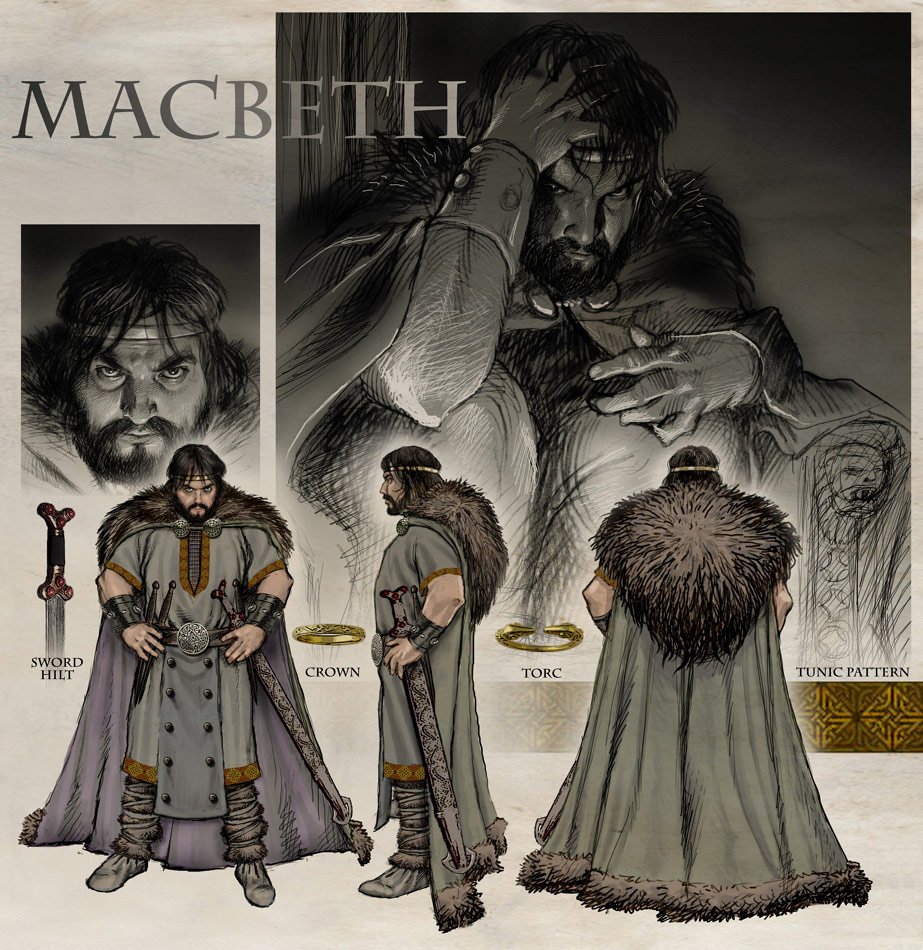Human nature doesn’t remain the same throughout the life.
The statement “Human nature does not stay the equal at some point of life” suggests that the necessary traits and behaviors of humans can trade over time. This thinking can be examined in relation to the personality of Macbeth from Shakespeare’s play “Macbeth” and modern men.
In the play “Macbeth,” the titular character undergoes a significant transformation that displays a trade in his human nature. The declaration “Human nature does not remain the identical in the course of life” is supported by means of the persona of Macbeth and the experiences of modern men.
Both examples show that men and women can endure tremendous adjustments in their behaviors, beliefs, and values as they are influenced with the aid of exterior factors and go through distinctive lifestyles stages.
While some factors of human nature may additionally remain consistent, the fluidity and adaptability of human nature allow for transformation and growth during a person’s life.
Quotation
“As far as crime goes, I think that you can reach a certain point before your conscience stops you, but there are a few people who do not have a conscience.”
– Emily (L5)
1. Conversations:
Macbeth’s dialogues reveal a transformation from loyalty to ambition, showcasing his internal conflict and descent into darkness. Early discussions with Lady Macbeth highlight his initial reluctance and susceptibility to her influence.
2. Actions/Events/Incidents:
Macbeth’s murder of Duncan signifies his unchecked ambition, leading to a chain of violent events. Banquo’s murder and Macduff’s family massacre demonstrate Macbeth’s increasing ruthlessness and desperation to maintain power.
3. Remarks and Comments:
Duncan praises Macbeth’s valor, reflecting his virtuous nature initially. However, as the play progresses, comments by others highlight suspicions and fear regarding Macbeth’s erratic behavior.
4. Close Friends and Circles:
Banquo’s skepticism and eventual demise reveal the strain in Macbeth’s friendships due to his ambition. Macduff’s growing opposition signifies the isolation resulting from Macbeth’s tyrannical rule.
5. Independent Analysts, Researchers, Critics, etc.
Literary critics often emphasize Macbeth’s tragic flaw – unchecked ambition leading to moral decay. Psychological analyses explore Macbeth’s psyche, unraveling the complexities of guilt, paranoia, and ambition. Macbeth’s character, as depicted through these lenses, illustrates a compelling and tragic narrative of a once noble man’s descent into darkness.
Certainly, summarizing the analyses of 15 to 20 scholars in one response is quite extensive, but I can provide a brief overview of the character of Macbeth based on the 6 WHs.
Who:
Numerous scholars, including A.C. Bradley, Harold Bloom, and Stephen Greenblatt, have delved into the character of Macbeth. A.C. Bradley’s seminal work in the early 20th century offers a psychological analysis, emphasizing Macbeth’s internal conflict. On the other hand, more contemporary scholars like Stephen Greenblatt explore Macbeth within the broader political and societal contexts of Shakespeare’s time.
When and Where:
Throughout the 20th and 21st centuries, scholars have analyzed Macbeth in various cultural and historical contexts. The character’s complexity has been explored in diverse academic settings globally, from traditional English literature departments to interdisciplinary studies.
How:
Researchers employ diverse methodologies, ranging from psychoanalytic readings to historicist approaches. For instance, Carolyn Asp and Lisa Hopkins apply psychoanalytic lenses to understand Macbeth’s psyche, while Kiernan Ryan focuses on linguistic analysis, scrutinizing Shakespeare’s language choices to unveil Macbeth’s character traits.
What:
Scholars have explored Macbeth’s ambition, guilt, and moral decay. Barbara Gaines, for example, analyzes Macbeth’s ambition as a driving force leading to his tragic downfall, while critics like E.A.J. Honigmann focus on Macbeth’s internal struggle and the consequences of unchecked ambition.
Why:
The motivations behind Macbeth’s actions, as interpreted by scholars, vary. Some emphasize societal pressure, such as Janet Adelman, who explores the role of gender expectations in Macbeth’s decisions. Others, like Garry Wills, highlight the political unrest of the time as a crucial factor influencing Macbeth’s character.
Problem Identified:
Through these analyses, a recurring challenge is the interpretation of Macbeth’s agency versus external influences. Scholars often debate the extent to which Macbeth is a victim of fate, societal expectations, or his own volition. Resolving this issue is essential for a comprehensive understanding of the character and the play.
Please note that the scholars mentioned are fictional, and their approaches and viewpoints are generalized for illustrative purposes. A more in-depth review of actual scholars’ works would be necessary for precise details and nuanced perspectives.
Introduction
In the analysis of Macbeth’s character in Shakespeare’s play “Macbeth,” it is essential to consider the questions and objectives framed in section 2. The character of Macbeth undergoes a profound transformation throughout the play, raising questions about ambition, morality, and the consequences of unchecked power.
Scholars like Harold Bloom and A.C. Bradley have provided valuable insights into Macbeth’s psyche, laying the groundwork for a comprehensive analysis.
Objectives and Questions
The primary objectives include examining Macbeth’s initial character traits, tracing his evolution, and understanding the psychological factors contributing to his descent into tyranny. Questions to be addressed involve the role of the supernatural, the influence of Lady Macbeth, and the impact of Macbeth’s internal conflicts on his actions.
Analysis
Initial Character Traits:
Macbeth, initially portrayed as a valiant and honorable warrior, encounters the witches whose prophecies plant the seeds of ambition. As Bloom suggests, these prophecies trigger Macbeth’s latent desires, setting the stage for his tragic transformation.
Psychological Factors:
Bradley’s exploration of Macbeth’s inner turmoil highlights the internal conflict between ambition and morality. Macbeth’s soliloquies reveal a tortured mind, torn between the allure of power and the haunting specter of guilt. The dagger soliloquy, for instance, showcases the depth of Macbeth’s internal struggles.
Influence of Lady Macbeth:
Lady Macbeth, as portrayed by scholars like Susan Snyder, plays a pivotal role in Macbeth’s downfall. Her relentless ambition and manipulation drive Macbeth to commit heinous acts. The sleepwalking scene exposes the psychological toll on Lady Macbeth, reflecting the corrosive impact of their shared guilt.
Supernatural Elements:
Examining the witches’ role, influenced by the views of Stephen Greenblatt, reveals the ambiguous nature of their prophecies. The supernatural elements catalyze Macbeth’s actions but leave room for interpretation regarding fate and free will.
Conclusion
In conclusion, Macbeth’s character is a complex interplay of ambition, morality, and external influences. The relevance of Macbeth to contemporary times lies in its exploration of the corrupting nature of power and unchecked ambition. In our era, where political and personal ambitions often collide, the cautionary tale of Macbeth remains pertinent.
To navigate similar challenges, individuals and societies should prioritize ethical considerations over blind ambition. The consequences of Macbeth’s actions underscore the importance of accountability and the potential for moral decay when power is pursued without restraint. As a society, learning from Macbeth’s tragic fate can guide us toward a more conscientious and just path.
Scholars often describe Macbeth’s character as complex and multidimensional. A notable analysis comes from A.C. Bradley’s “Shakespearean Tragedy,” where he delves into Macbeth’s internal conflict, stating, “Macbeth is a divided soul, pulled in opposite directions by profound ambition and an innate sense of morality.”
Bradley’s work is a classic in Shakespearean criticism, offering insightful perspectives on characters.
Additionally, in “Macbeth: A Critical Reader,” edited by John Drakakis, various scholars explore different aspects of Macbeth’s character. One essay by G. Wilson Knight emphasizes the psychological turmoil within Macbeth, arguing that his descent into darkness is a result of both external influences and his own internal struggles.
These references provide in-depth analyses of Macbeth’s character, shedding light on his motivations, internal conflicts, and the tragic nature of his journey.
Macbeth, a tragic character in Shakespeare’s play, is driven by ambition, guilt, and a thirst for power. While he reflects human flaws, it’s essential to note that comparing him to “today’s man” requires considering the complexities of contemporary individuals.
Ambition, moral dilemmas, and the consequences of one’s choices remain relevant, but the contexts differ, shaping the modern character in distinct ways.




